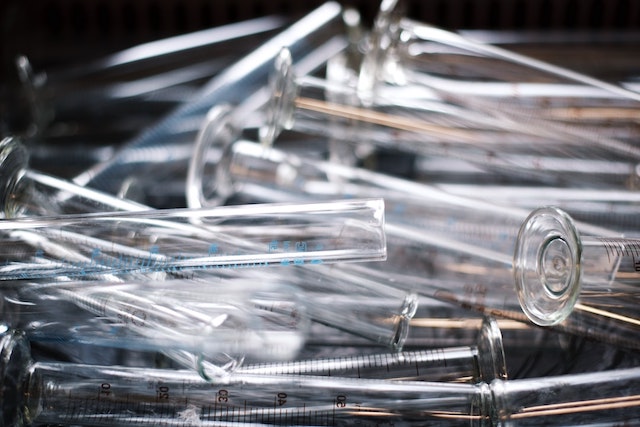
Plastics have been used in the healthcare sector since the 1800s. But what are the common uses of plastic machined products in the medical industry today?
Applications for machined products in the medical industry vary. They include items such as surgical instruments, medical implants, and customized products.
Machined products in the medical industry are becoming increasingly popular. They make an excellent choice for any type of medical device or application.
Discover the uses of machined products and how they can benefit you with our guide. Let’s take a look at all the common uses in the medical supplies industry today.
You can trace the use of plastic machined products back to the 1800s, primarily in the form of rubber-based items like gloves and tubing. Throughout its history, the use of plastic has been for both medical instruments and components.
In recent years, plastics have seen an influx of uses to create products within the medical industry. The reason is due to their versatility and cost-effectiveness.
3D printing technology and advanced machining techniques produce plastic products quickly. They also have a high degree of tolerance. Here are some of the main uses.
Plastic machined products are perfect for medical applications. They’re lightweight, durable, and easy to clean. You can also customize them to any shape or size.
The benefits of plastic machining for medical purposes are vast.
They can produce components quickly and cost-effectively. The tolerances are also excellent, meaning parts will be high quality and uniform. Additionally, machined products come in a variety of shapes and sizes.
The medical industry uses plastic machining for its accuracy, precision, and reliability. Also, plastic machined products are ideal for replacing metallic components due to their weight and cost.
The advantages of plastic machined products in the medical industry include:
Using machined products can make the production process of medical components easier. It’s also faster, and more cost-effective. It also allows for greater accuracy and uniformity in the parts produced. Additionally
The process of machining metal or plastic components has been around for a long time. However, the technology used in modern machining processes has improved greatly over the years.
CNC machines are often used to create components with extremely precise tolerances and accuracy.
This is ideal for producing components that need very tight tolerances and uniformity. The process can produce parts with complex shapes and sizes that cannot be created by other methods. Additionally, CNC machining is relatively quick and cost-effective compared to traditional manufacturing methods.
This is another popular method used in the medical industry for producing components. This process involves injecting molten plastic into a pre-made mold to create a finished part. This is a cost-effective way to produce large quantities of components with exact specifications.
This is also known as additive manufacturing. This method uses a printer that prints layers of material to gradually build up layers of the component. The process is often used for producing prototypes and custom parts. It is also popular among medical professionals due to its accuracy and cost-effectiveness.
This is a process used to join two or more plastic parts together using sound waves. It is often used for medical applications due to its high speed. It also does not require any extra materials such as adhesives or rivets.
The medical industry leverages many plastic machining applications. This allows them to create components with high precision and reliability.
Let’s delve into some of the specific applications of these machining processes in the field of medicine.
CNC machining is the preferred method for producing components such as knee and hip replacement parts. 3D printing is often used to create prototypes and customized parts for orthopedic surgeries.
Plastic injection molding is a common technique used to produce medical instruments. This includes forceps, clamps, scissors, and syringes. Ultrasonic welding is also used to attach handles or other components to medical instruments for a more secure fit.
Cardiac implants are typically made from biocompatible plastics. These need to be machined with extreme precision. 3D printing is often used to create customized parts for these devices, as it can produce complex geometries with a high degree of accuracy.
The plastic components used in blood bags are often produced via injection molding. This is because it is a fast and cost-effective method for producing large quantities of parts. It is also important that the process ensures uniformity and consistency. This relates to wall thicknesses and other critical features.
Medical device enclosures are typically produced with CNC machining. This is due to their high accuracy and repeatability. It is also important that the process can handle tight tolerances, as these components must often be waterproof and dustproof.
The role of precision machined parts in the medical field is undeniably critical. Uses range from bone and joint replacements to intricate cardiac implants. Every component owes its existence to precise machining processes.
If you’re seeking precision machined plastic components look no further than Severna. With exceptional attention to detail, we customize each part to meet your specific requirements. They ensure the highest possible level of accuracy and reliability. Visit Severna today and request a quote.